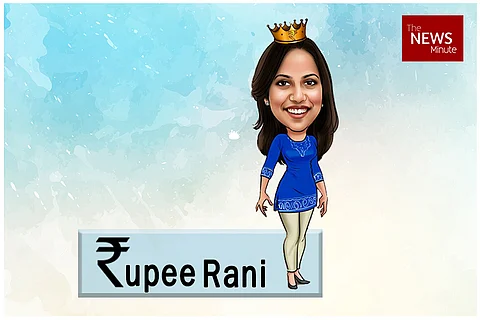

Signing up for a loan is one of the bigger decisions that you will take in your life. A monthly EMI is a big commitment for the working woman, so here are some golden rules you need to be aware of before you put your signature on the dotted line.
There will be fine print
Irrespective of the nature of the loan—home loan, personal loan or even a car loan—there will be terms and conditions written in complicated language that you will attest your agreement to. These terms and conditions usually have to do with the bank charges, sudden changes in interest rates, the consequences of late repayment of EMI, extra charges (like insurance premium), among others. Take the time to read these conditions, and mark what you don’t understand to clarify with your banker. Don’t worry about looking stupid to your banker—you have every right to know what you’re signing up for, and that you have doubts is a sign of how well prepared you really are. Besides, if you end up falling prey to the fine print later, you’ll definitely be looking stupid in front of everyone else.
Be aware of your tax deductions
There is some tax relief for borrowers. If you take a home loan, for example, both interest and principle are tax deductible. Similarly, if you take an education loan, the interest that you pay is tax deductible. Consult a Chartered Accountant about the potential tax savings that your loan is capable of giving you, and make sure you inform your HR about it, so that your tax deduction is reduced proportionately, and consequently, you have more money at your disposal each month.
Never borrow in full
Let’s assume you need a loan for a car, and the model you have in mind costs around Rs 10 Lakh, all inclusive. Ideally, you shouldn’t be taking a loan for more than Rs 5 Lakhs, and the other five lakhs should come out of your own savings. While banks can give you a loan for more, not taking a bigger loan ensures smaller EMIs and shorter loan tenure. Don’t have the savings for a Rs 10 Lakh car? Well...
Don’t borrow what you cannot pay
It makes zero sense to have loan EMIs eat up your entire salary. You need to save for emergencies, retirement, and whatever expenditure you might have coming your way. Having your EMIs eat up your salary also leads to dangerous financial behaviour, like borrowing, even more, delayed payments which in turn lead to greater interest payouts and the fact that an emergency can render you in deep debt. Avoiding this is simple—if you like something that is beyond your means, don’t buy it.
Never borrow for your wedding
I can never emphasise this enough. Weddings are getting more opulent by the day, and yes, they are ridiculously fun, but guess what—you’ll be spending all that money on one day. One day! Instead, you could save it up for something that you will personally find enriching, like a graduate degree, a nice car or even a trip abroad. If you, and your family are being pressured into throwing a wedding you cannot afford by your in-laws to be, you need to either put your foot down, or rethink the alliance (or maybe, both). Your worth is determined by your actions, not your wedding.